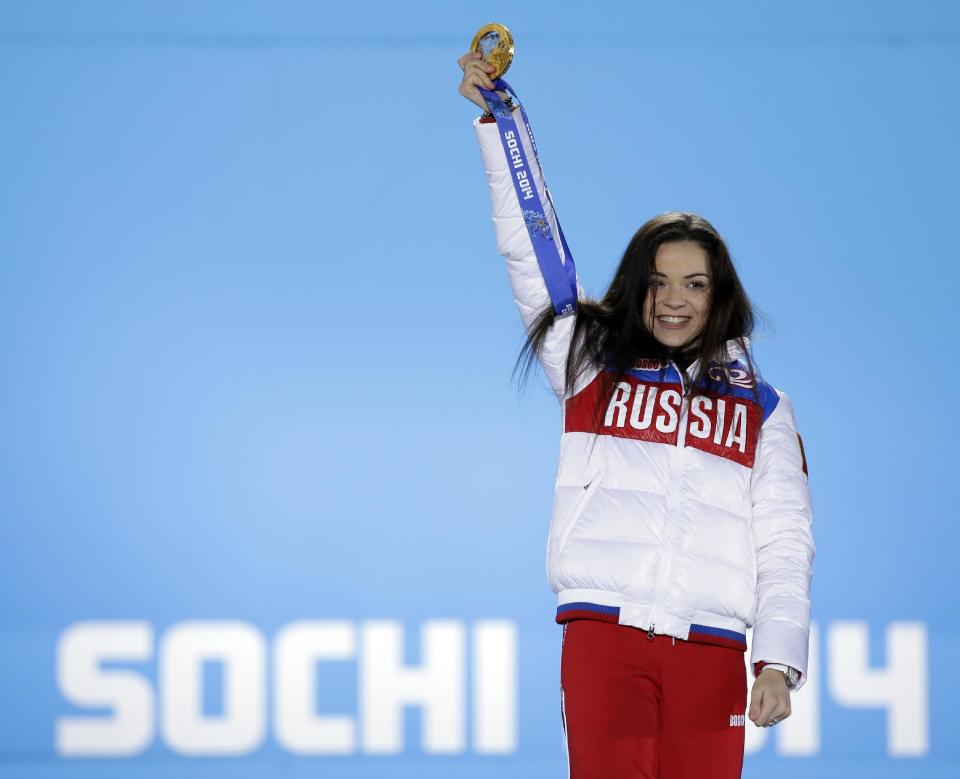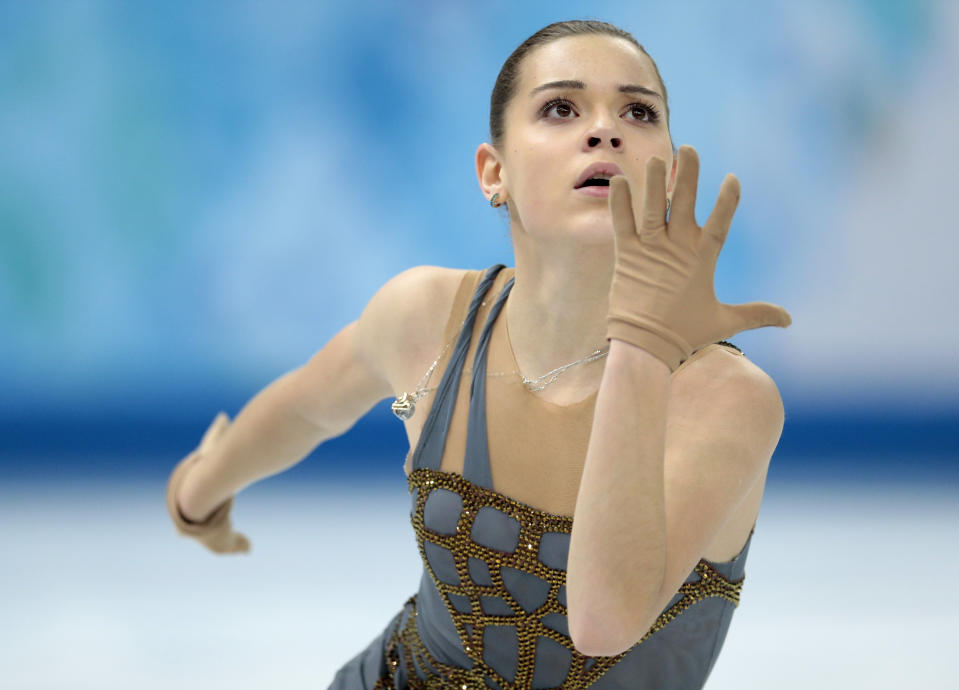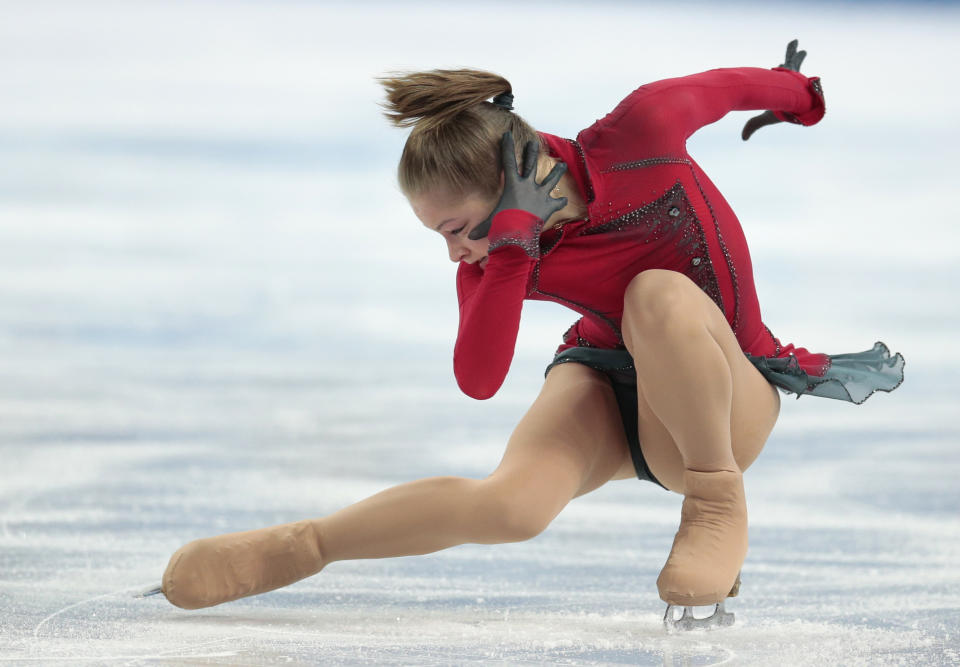Russia reaffirms command of Olympic figure skating
SOCHI, Russia (AP) — Russia's figure skaters meekly left the Vancouver Olympics four years ago with just one silver medal.
The sport they once dominated was the province of just about everyone else. With the next Winter Games scheduled for their home country, the Russians new things had to change quickly.
Did they ever. Russia leaves the Sochi Games with three gold medals, one silver and one bronze.
"You can see a lot of progress in Russian Olympic skaters," Elena Buyanova, coach of women's winner Adelina Sotnikova, said Friday. "After Vancouver, we had to sit down and analyze what was happening. We had a lot of meetings and there was much constructive criticism, and many lessons learned. There was a rededication ... and you can see the results."
Sure can. The Russians grabbed a medal in everything but the men's competition — their only man, Evgeni Plushenko, helped them to team gold, but withdrew after warmups in the individual short program.
They did it with veterans such as Plushenko, who has won medals in four games (two gold, two silver), and pairs winners Tatiana Volosozhar and Maxim Trankov.
And they won with youngsters: Sotnikova is 17, and Julia Lipnitskaia, a gold medalist in the team event, is 15. Pairs silver medalists Ksenia Stolbova and Fedor Klimov are 22 and 23, respectively. Ice dance bronze winners Elena Ilinykh and Nikita Katsalapov are 19 and 22.
In stating her future goals, Sotnikova could have been summing up the philosophy of her countrymen when she said: "I want all the gold that there is out there — everything that exists in figure skating. In all events, in all competitions."
Don't bet against them. Russia or the Soviet Union has 27 Olympic gold medals in the sport. They own five men's golds, 13 in pairs, seven in ice dance, and the only team event.
Non-Russians on the podium included gold medal-winning American ice dancers Meryl Davis and Charlie White, who edged their longtime training partners from Michigan, Canada's Tessa Virtue and Scott Moir, the defending champions.
"We wanted to fight for the best performance we could give and we did that. You dream of this for so long, work so hard, and they worked hard, too," White said, referring to Virtue and Moir. "They always have been with us, pushing us, and we couldn't have done it without them."
Yuzuru Hanyu became the first Japanese and first Asian to win the men's gold medal, although the event's free skate was, to be kind, a mediocre affair. It was more survival than anything for Hanyu, 19, in beating three-time world champion Patrick Chan of Canada and Denis Ten, whose bronze was the first figure skating medal for Kazakhstan.
Otherwise, the games were a disappointment for Japan, which has the deepest collection of singles competitors. Mao Asada, the only woman who regularly does a triple axel, fell on the jump in the short program and had to rally to wind up sixth.
Canada has something to build on with silvers in the team, dance and men's competition. The problem: Chan, Virtue and Moir all are likely to move on.
Whether the International Skating Union moves to make changes to its judging system becomes a focal point heading toward the next Winter Games, in 2018 in Pyeongchang, South Korea. Because of a lack of transparency, the format has come under criticism once more, particularly after the women's free skate.
Sotnikova won with an energetic, busy, athletic program, while defending champ Yuna Kim, who took silver, and Italy's Carolina Kostner, who got bronze, were far more artistic. Questions about the importance of artistry in the sport have arisen again.
"Yuna and Carolija couldn't beat an athlete last night," 1984 gold medalist Scott Hamilton said Friday. "But it is the Olympic Games, an athletic event, not an artistic event. Figure skating is in that kind of muddled area. You want the Olympic champion to be everything they were last night, but when an athlete throws it down and covers all bases, you might say how did that happen?
"But it is all very clear. The difference in the technical score. The way Adelina has built her skating, whether or not beautiful or graceful or balletic does not matter, because rules don't really stipulate it has to be that."
___
AP Sports Writer Rachel Cohen, Associated Press Writer Leonid Chizhov, and freelancer Marie Millikan contributed to this story.



